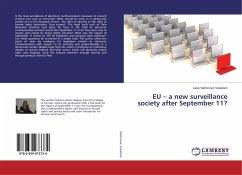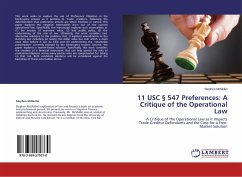Is the mass surveillance of electronic communications necessary to prevent criminal acts such as terrorism? What should be prior in a democratic society as it is the European Union - the right to security or the right to human rights protection, thus privacy? Can legal tools such as Data Retention Directive and other EU laws in the field of electronic communications prevent events like September 11 or do they serve only to resolve past events by being highly intrusive? What was the impact of September 11 events on the EU legislation and personal data collection? Can these questions be anwsered in a simple way? The author offers her point of view by analysing EU legislation related to electronic communications with respect to its necessity and proportionality in a democratic society. Besides legal texts the author introduces an interesting debate of various political and NGO actors, which will obviously remain open and ongoing, since the balance between enough security and enough privacy is hard to find.
Bitte wählen Sie Ihr Anliegen aus.
Rechnungen
Retourenschein anfordern
Bestellstatus
Storno








